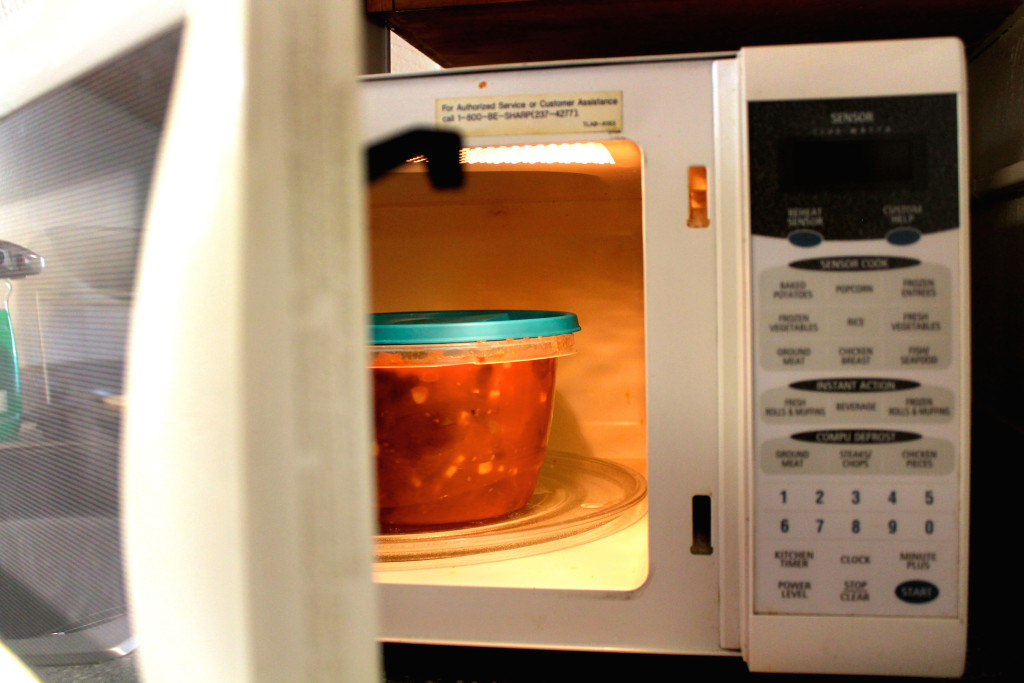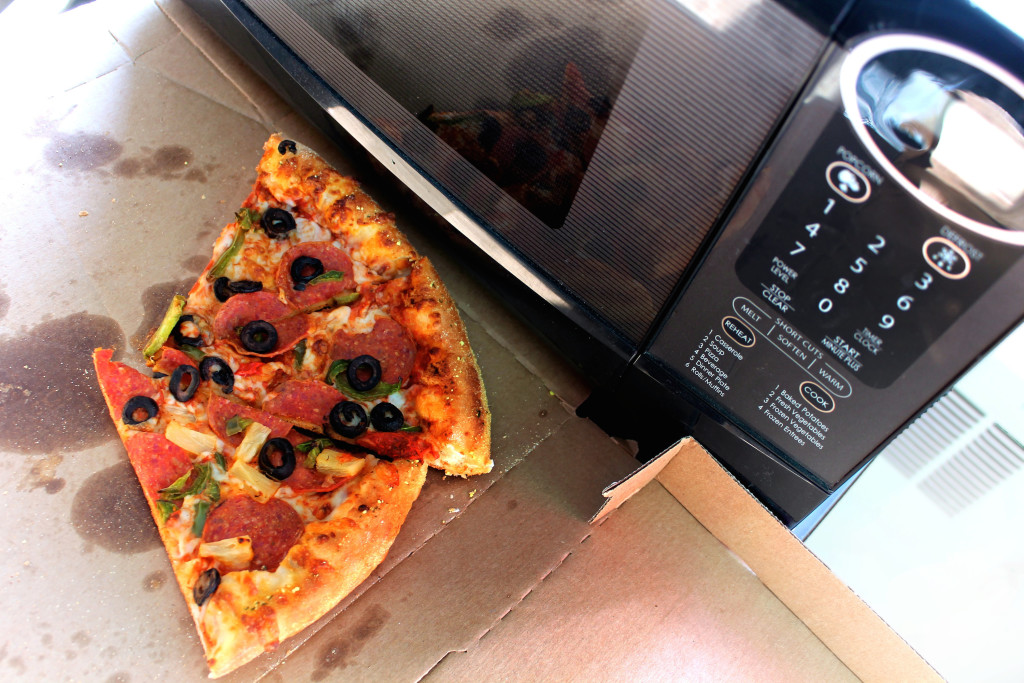You’re standing in your kitchen, waiting for the microwave popcorn you just put in to begin popping and you know that in about three minutes your salty snack for your Friday night movie will be scarf-ready.
But you suddenly begin to worry, because you remember that one time your friend’s aunt heard from a coworker who read online that microwaving your food can cause cancer. You watch the glass plate turn and the bag grow bigger. Could it be true?

Photo by Ellen Gibbs
Keep that glass plate turnin’, because the process of microwaving your food does not cause cancer (the plastic lining on the inside of the popcorn bag might, but that’s a different story).
In order to heat your food, microwaves give off what’s known as non-ionizing radiation, which, according to Cancer Research UK, has enough energy to move things around inside a cell, but not enough to change cells chemically. This means that the frequency of the waves are so low that they don’t have enough energy to damage the DNA in our cells – phew.

Photo by Ellen Gibbs
To put it in perspective, some examples of other appliances that emit non-ionizing radiation are lamps that keep food in restaurants warm, radios, televisions, and the computer screen that you are staring at right now.
But, if you’re still not convinced, a study by the FDA’s Center for Devices and Radiological Health, which regulates microwave-oven safety, found that the amount of radiation any unit made after 1971 can possibly leak throughout its lifetime is a mere five milliwatts per square centimeter at roughly two inches away from the oven.
And just in case you don’t speak radiation, that’s not a lot.

Gif courtesy of giphy.com
But, even though the microwaves themselves aren’t a hazard to our health, it’s important that you only microwave food in containers that are meant to be microwaved. Plastic containers not meant for microwave use could melt and potentially leak chemicals into your food and ain’t nobody got time for that.
So, myth debunked; go enjoy one of history’s best cooking innovations, worry-free.

